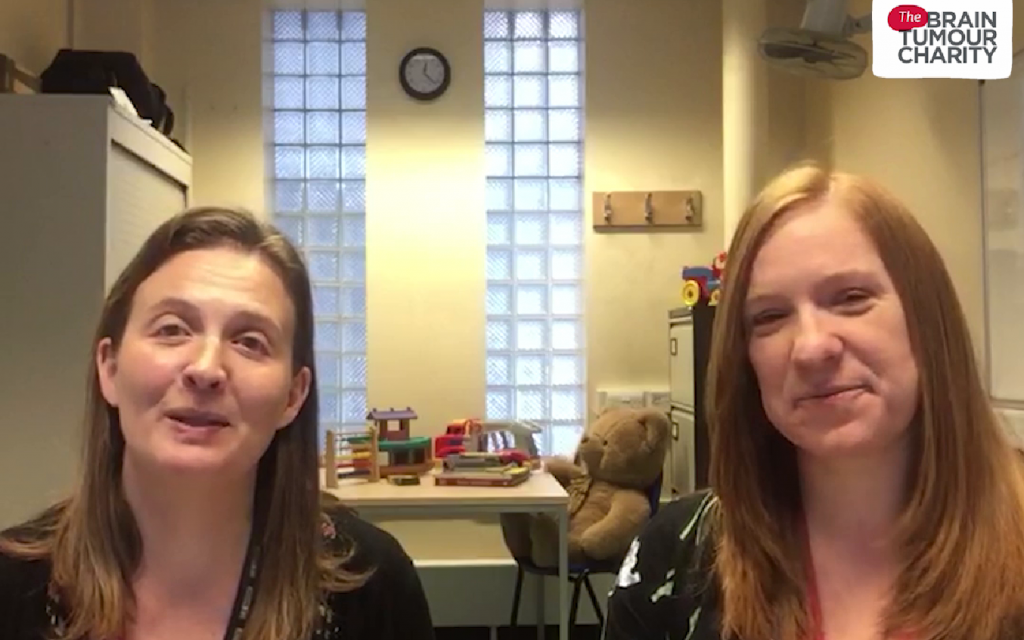Returning to education after a brain tumour diagnosis or treatment can be a challenging time for a child. We know that supporting them through this can be difficult – it’s one of the most common topics raised with our Children and Families Team.
This blog covers top tips for helping your child to return to school after diagnosis or treatment, answers some of the questions you might have and signposts to other sources of information and support, including resources for your child’s teachers.
Top tips for supporting your child to return to school
In the below video, you’ll hear from two clinical psychologists, Emily Bennett and Emily Talbot from the Department of Clinical Psychology and Neuropsychology at Nottingham University Hospitals.
They share their top tips for supporting your child to return to school after diagnosis or treatment for a brain tumour.

“One of the things we’d recommend is to start getting ready for your child’s return to school as soon as you can. Ideally, this will give you the opportunity to meet with teachers and have a plan in place, so everyone feels more confident and reassured about the process.”
Emily Bennett and Emily Talbot
Common questions and concerns you might have
-
It’s important to talk to your child about their feelings around returning to school, as they may have fears or anxieties they want to share.
As Emily Bennett and Emily Talbot suggest, it’s often helpful if your child has a keyworker or key contact at school who they can go to with any questions or worries.
It can also help to consider a phased or step-by-step return to school. You may feel it’s best for your child to return for a few hours a day, a few days a week, and build up from there, depending on how they’re doing emotionally and physically.
-
It can be helpful to meet with teachers before your child returns to school and put a plan in place, including knowing which days and times your child is planning to attend. We have an educational support strategy that can help with this.
If your child will need additional support, requires extra funding or an application for an Education, Health and Care (EHC) plan, it’s best to get this process started with the school before your child goes back.
You should have a letter from your child’s medical team with information about their diagnosis and treatment, which you could pass on to the school. We also have an information card that you and your child could fill out and give to their teachers to keep.
-
Your child’s teachers and school friends may not fully understand what you have been through as a family. It can often be helpful if they have the chance to learn a bit about brain tumours, their treatments and the challenges your child may now be facing. This can help them support your child after their return.
We have a range of animations exploring and explaining a variety of subjects relating to brain tumours, which were designed for children.
We’ve also signposted to some other helpful resources for teachers below, which you could share with your child’s school.
Our education resources
Our education resources can provide help and support to a child, their family and their teachers when they return to school following a brain tumour diagnosis or treatment.
The resources give information on what to expect and what help is available. They can be used in a variety of ways, such as recording the direct support of a young person, training staff, etc., and are designed to be used as and when needed.
Other sources of support
- Contact is a magazine produced by the Children’s Cancer and Leukaemia Group (CCLG) for families of children and young people with cancer. This issue explores the topic of returning to school after a cancer diagnosis or treatment in detail.
- Macmillan Cancer Support has information for teachers and schools on preparing for a child with cancer returning to school. They also have a Talking about cancer toolkit for schools, which can help schools give young people the facts they need about cancer.
